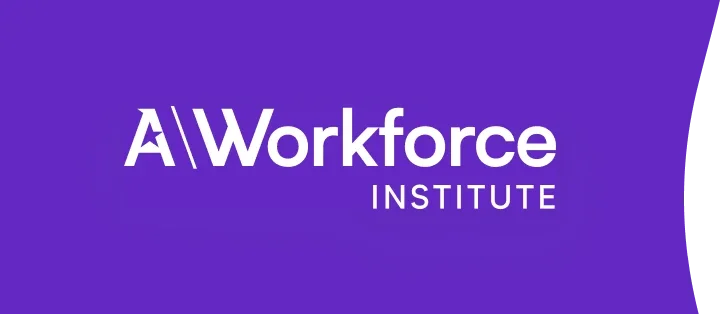Coaching camp: Building a winning professional development playbook
AWI workforce insights series

This resource is brought to you by:
Topics Covered:
Attracting and retaining talent
Manager effectiveness
Productivity and Performance
A strong coaching culture is the secret to high-performing teams — on the field and in the workplace. Just like world-class athletes rely on coaches to reach their full potential, employees need coaching to grow, stay engaged, and drive results.
But here’s the challenge: 85% of workers want a coach, and only 17% know how to find one.
Ready to close the gap? Our latest research uncovers why coaching matters, where organizations fall short, and how to build a professional development playbook that fuels retention, engagement, and business success.
What makes an excellent coach?
Traditional coaching suggests a top-down approach, but today’s workforce wants something different. Employees aren’t just looking for authority figures; they want coaches who are team players — collaborative, supportive, and invested in their success. The best coaches don’t just give advice; they listen, recognize effort, and provide actionable, constructive feedback that drives real growth.
Is your coaching approach keeping up? Learn how to build a coaching culture that empowers every employee to thrive.

Build a coaching culture that drives engagement
Employees who know where to find a coach are 2.2x more likely to feel highly engaged at work. But here’s the problem—coaching is often reserved for leaders or a select few, leaving most employees without the guidance they need to grow. It’s time to change that.
Our coaching culture guide research reveals three key ways to make coaching more accessible, effective, and built on trust:
- Reframe professional development
- Give feedback that matters
- Mobilize employee connections
Don’t just build employees — build champions
A strong coaching culture fuels engagement, retention, and performance. But to get it right, coaching needs to be accessible, meaningful, and rooted in trust. Employees want more than just managers. They want mentors, supporters, and teammates who help them grow.
Achievers Workforce Institute gives you the playbook to create a winning coaching culture, with insights from Achievers Workforce Institute on what employees really need to succeed.
Ready to coach your team to victory? Download Coaching Camp: Building a winning professional development playbook today.

Join our mailing list
Stay up to date with the latest in workforce science from Achievers Workforce Institute.